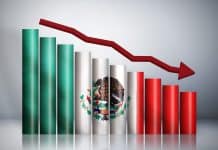Advertisements
Although the greatest concern regarding the current pandemic of coronavirus is to stop its spread and save lives, we cannot, at the same time, ignore the fact that the virus will also affect the economy and, more importantly, people's finances.
So, while taking plenty of precautions about maintaining health and hygiene standards, also consider taking some steps to prevent any potential damage to your credit score and financial health.
Advertisements

Here are some tips that will help reduce the negative impact of coronavirus on your credit score and keep your overall financial health secure.
Advertisements
Reduce luxury lifestyle and spending
One of the best ways to be prepared to handle an unprecedented emergency like coronavirus is to reduce non-critical expenses. Evaluate where you can spend less. Eliminate any non-essential expenses and figure out exactly how much you would need for essentials like food, shelter, and transportation. This will help you get through this transition period. You should also review your credit card usage and take all possible steps to avoid increasing debt, as missed credit card payments can lead to debt and negatively impact your credit score.
Turn to contactless digital payments
According to the World Health Organization, banknotes can carry the virus and, therefore, it is advisable to resort to contactless payments. The government has also asked banks to encourage customers to use digital payment methods such as debit cards, credit cards, mobile banking, for transactions instead of paper money as a method of protection against coronavirus.
Check your credit report regularly
Although keeping track of your credit report should be a regular practice, now is the time to be extra vigilant about it. In these uncertain times, you should be well aware of all the activities that occur around your finances and monitor your credit report for any unwanted or fraudulent activity. The idea is to take care of these issues as soon as possible before they do damage to your credit score.
Manage debt obligations and keep lenders up to date
Paying credit card bills and EMI loans on time are the most important steps in achieving and maintaining a good credit score. If you don't make payments on time, you may incur a late fee, a penalty interest rate, and ultimately risk damaging your credit score. If you think that due to the pandemic you may stop paying, you should contact your lender as soon as possible and find a way to work together to find a mutually feasible solution.
Avoid using the credit card as an emergency loan
The pandemic may affect your monthly salary or business income. When compared to a credit card, a personal loan is a more viable option at these times. You are charged a GST 18% in credit card EMI, the payment duration of a credit card ranges from 12 to 48 months, while the same in a personal loan can be up to five years and the The interest rate charged on the credit card is much higher compared to a personal loan.
Read More: Coronavirus may bankrupt some Chinese businesses
Pay outstanding debts
In times like these, you should not accumulate too many bad debts, but pay them off as soon as possible. The economic uncertainty that may follow the pandemic may affect your ability to repay credit, thereby negatively affecting your credit score and credit history. To avoid such a scenario as a first step, it is necessary to prioritize the payment of your loans. Make a list of all outstanding loans and then identify the ones that need to be addressed first. Ideally, you should start by paying off the most expensive loan.
By paying off debts that charge higher interest rates first, your total interest expense is reduced as bad debts with higher interest rates accrue interest more quickly. You can also liquidate underperforming or unprofitable investments to pay off outstanding debt and protect yourself from falling into the debt trap. Use any windfall, such as income tax returns, expiration proceeds from life insurance to pay outstanding credit installments before the coronavirus.



